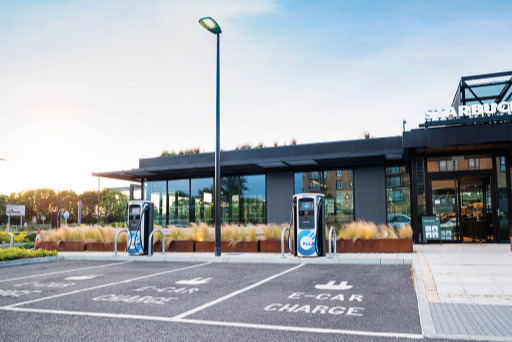All aboard the electric revolution

The inexorable rise of Electric Vehicles continues apace with a 115% rise in Irish car sales last year, perhaps not surprisingly far and away outstripping the relatively modest leaps of every other engine type.
That said, the actual number of new EVs sold at 8,646 still only represented just over 8% of 104,000 all new vehicles sold.
Climate change minister Eamon Ryan had set a target of having almost one million EVs, both private and commercial, on the roads by 2030.
The Republic’s Climate Change Action Plan had envisaged having 845,000 electric cars, 95,000 vans, 3.500 lorries and 1,500 buses in operation by then (a total of 945,000)
The Green Party leader himself admitted in November that target would be “difficult to achieve” with Tánaiste Leo Varadkar conceding “we may have to do better with a work car van than with a private car side. But that’s the goal, and it’s a combination of the two”.
The fact is that in less than 10 years we will no longer be able to buy the new petrol and diesel cars most of us now drive and once Electric Vehicles reach purchase cost parity with traditional cars there will be little reason to opt for a conventional vehicle whose resale value could be virtually nothing a few years later.
Aside from a higher purchase cost the other fly thus far in the EV ointment has been range anxiety… and that’s where the forecourt rides to the rescue.
Charging to the rescue
If you don’t have a spare €60,00 for a range topping Tesla Model 3 LR, which can manage almost 350miles per charge, chances are you’ll be stopping for a top-up somewhere between Dublin and Belfast on a round trip.
The UK’s Policy Exchange think-tank has said the UK’s rollout of electric vehicle charging points is way behind what is needed to meet its planned ban on new petrol and diesel cars, and that’s a picture reflected in Ireland too.
As a result, forecourts everywhere are now stepping up the installation of rapid charging points to cope with rising EV sales and the fact that in little over a decade the face of motoring will be radically changed.
Just over a year ago the UK’s first forecourt dedicated to only electric cars opened in Braintree, Essex, and there’s little doubt more will follow all across the UK, Ireland and mainland Europe.
Forecourts everywhere are now stepping up the installation of rapid charging points to cope with rising EV sales and the fact that in little over a decade the face of motoring will be radically changed.
Fuel brand leaders
Maxol chief executive Brian Donaldson has already said he is planning on investing a seven-figure sum into transitioning forecourts from diesel and petrol pumps and towards electricity charging points, but he also called for more government help, especially when it comes to accessing the grid.
He told The Times: “There has been no clear direction [from government]. As a company we are happy to make the investment within our own site. We think the government should step in with investment outside of our site that will take power to our location.”
Maxol is currently planning to roll out charging hubs at Mitchelstown in Cork, Castletroy in Limerick, and in north Dublin over the next eight months and while every new charging point is a tick in the plus column for EV ownership, he’s not alone in expressing frustration over the State’s ambitions on the transition not necessarily being backed by sufficient investment.
Chief of executive of Applegreen’s EV division Eugene Moore noted that Ireland is behind the UK and the US — where the forecourt retailer also operates — in terms of grants available to help them transition to electric charging hubs.
Mr Moore pointed out that President Biden’s infrastructure bill sets aside $7.5 billion (€6.6 billion) worth of support for EV infrastructure in America, while the UK has £950 million (€1.1 billion) earmarked for the same.
Applegreen itself is planning to spend €100 million in the next few years, with a plan to incorporate 700 new charging points across its Irish sites “lighting up 50 hubs this year,” he noted.
The company plan to complete its own rollout to keep pace with the public’s adoption of EVs
Tackling range anxiety
While public charging points play a key role in encouraging the switch to EVs, so too does the purchase cost and improvements in batteries to reduce ‘range anxiety’ and the reliance on charging too often when straying far from home.
The fact is charging your car overnight at home, when electricity rates are at their lowest, makes economic sense and there is currently a €600 grant available to help with the cost of installing a private charger in your driveway.
Not everyone has their own driveway or dedicated parking spot however, and to that end the ESB, which operates over 1,350 public charge points across Ireland, has matched €10 million in government funding from the Climate Action Fund to expand the network by the end of this year.
Funding too has been approved for local authorities to install and maintain more on-street public chargers, but this will need to be greatly ramped up as more people make the switch.
The postcode lottery
While there is no debating the fact that EVs are cheaper to run than traditional vehicles its still not a level playing field depending on where you live.
In the UK an average motorist will spend around £300 charging their EV for the year while in Ireland the same power will set you back around €800.
That’s still a huge saving when compared to filling the tank with petrol or diesel but it’s enough of a disparity to get annoyed about.
With costs starting at around €30,000 for a new compact EV in Ireland it’s perhaps little surprise that they are not yet being bought in greater numbers than they are.
Supply issues which have dogged the industry for the past couple of years are also affecting would-be EV buyers.
While going electric represents a not unsubstantial investment the fuel saving after three or four years, coupled with negligible maintenance costs, eventually make for a compelling argument.
Holding off
With supply issues dogging the whole of the motoring industry for the past couple of years getting your hands on the EV of your choice when you want it is far from guaranteed and there’s perhaps one compelling reason to hold off for a year or two… that being huge advancements in the batteries which power them.
A Tesla Model 3 Long Range, with a reassuring range of close to 350miles will currently set you back a cool €60,000 but the fact of the matter is most drivers would settle for a lesser range if charge time could be reduced on the street and at the forecourt.
The good news is scientists at Pennsylvania State University in America have developed new batteries for EVs that can charge in just 10 minutes.
Made from lithium, they also allow users to drive their cars 250 miles before needing to be charged again.
The alternative batteries could make new EVs cheaper than those that use cobalt in their batteries, making the initial purchase more enticing.
The fact is we are going electric, it’s just a matter of how soon we get there.
To read the full article in Ireland’s Forecourt & Convenience Retailer yearbook, click HERE.








